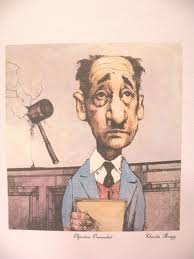The Texas House’s Democratic minority was dealt a blow Monday when the House passed an amendment to the chamber’s rules to limit legislators’ ability to derail a bill based on clerical errors. Calling “points of order” on such errors is a strategy lawmakers have often used to block measures they oppose.
State Rep. Phil King, R-Weatherford, authored the amendment to the House rules to limit abuse of typographical mistakes to kill legislation. Points of order on those types of mistakes send bills back to committee to be corrected before they can return to the floor to be voted on.
“The practice has been to allow bill after bill after bill to be defeated because a clerk at midnight, a sleepy and tired 25-year-old, made a typographical error,” King said. “That’s just not appropriate.”
Several Democrats and one Republican spoke against the provision, arguing that it weakens minority power. Rep. Armando Walle, D-Houston, said the amendment takes “tools out of the toolbox” for the minority party.
Since Republicans became the House majority in 2002, Democrats have often called points of order on the paperwork, including committee minutes and reports, that accompanies legislation. Under the new rule, a point of order may be overruled if it is “substantially fulfilled and the violation does not deceive or mislead.”
You can see the amended rule here. This is potentially a big deal, because Democrats have indeed been very adept at using points of order, known colloquially and amusingly as POOs, to stymie, delay, and sometimes kill outright bills they don’t like. Not just Democrats, of course, as anyone familiar with the oeuvres of Robert Talton and Arlene Wohlgemuth can attest, but it’s certainly been the main arrow in their quiver these past few sessions. Limiting their ability to wield this weapon will limit their ability to influence the outcomes. Having said that, I do have some sympathy for what Phil King says. There’s not really a principle behind POOs, and as they say about holding in the NFL, you could probably find such errors on every bill if you wanted to. It’s a matter of how much sway the minority is allowed, and how much authority the majority thinks it ought to have to enact its agenda. How you feel about these things is almost certainly directly proportional to your feelings about the majority and minority parties in the legislative body in question.
It occurs to me that this is also a potential trap for Speaker Straus. If he takes this rule to heart and regularly slaps down POOs he deems to be non-worthwhile, that could galvanize Democrats to abandon him and coalesce around a future challenger like David Simpson, who by the way was one of three Republicans (Jim Keffer and Gary Elkins were the other two) to vote against this amendment. If he continues to let Democrats knock bills down – and note that as a general rule, POOs only delay bills by a few days, so except in deadline situations they can be fixed and re-introduced; this happened several times last session – he’s unlikely to endear himself to his Republican critics. I think Straus is smart and slick enough to walk the tightrope, but it will be a challenge. BOR, Rep. Mike Villarreal, Trail Blazers and Texas Politics have more.
UPDATE: More from the Observer.


I am sorry to spoil the conspiracy theory about how the evil GOP is using a rule to hurt the Democrats….but this “new” rule is based on one adopted when Pete Laney was speaker…Remember him, the last Democratic Speaker. It was a good rule then and a good rule now….Funny thing is that it was dropped from the House RUle book during the next session because some Republicans felt it allowed the Democrats, who were then in control of the House, to runover legitimate opposition. Even funnier, some of the very same Democrats who are now crying foul, voted for it when it was a Laney rule. The more things change…the more they…..Hypocrisy anyone?
“There’s not really a principle behind POOs.”
That’s not really true. POOs make the lower chamber follow their own rulebook, which contributes FAR more to transparency than anybody who’s never worked a bill through the process would realize. Your analogy to holding in the NFL is a good one – it may seem arbitrary to those outside the game, but the players understand the rules and it would ruin the game if 340 pound lineman could just grab a defender, hang on, and force them to the ground.
Going back to Jefferson’s original Senate rules, which became the basis for Robert’s Rules of Order following the Civil War, legislative bodies in this country have placed value in rules that constrain the chair, and POOs are the mechanism in the Texas House for doing that. Taking away that tool disempowers every House member.
Brian points out that, in the past when POOs were eliminated, “Republicans felt it allowed the Democrats, who were then in control of the House, to runover legitimate opposition.” And it’s true, whichever party or leader decides they’re above the rules.